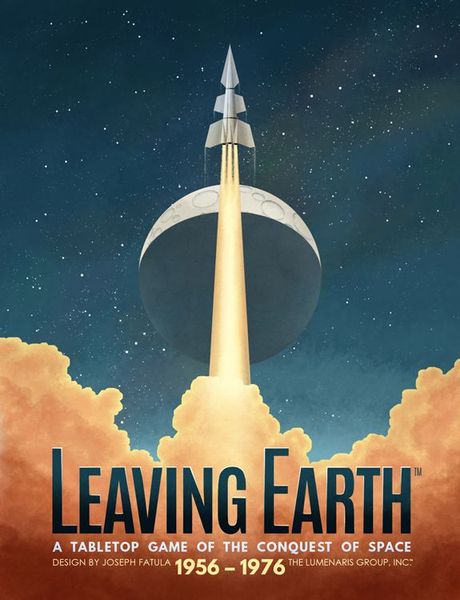Leaving Earth (2015) Board Game
Leaving Earth is a strategic board game that was released in in 2015. Designed by Joseph Fatula, the game is set in the early days of space exploration, where players take on the role of a space agency competing to explore the solar system. With a focus on math and science fiction, Leaving Earth offers a unique gaming experience that challenges players to plan missions, research technology, and manage resources efficiently.
Game Components of Leaving Earth
How To Setup Leaving Earth
To set up the game, players first lay out the location cards in a specific order, forming a path from Earth to various celestial bodies. Each player selects a space agency card and the corresponding spacecraft tokens. Mission cards are shuffled and laid out based on the game difficulty chosen (Easy, Normal, Hard, or Very Hard). Players start with $25 million, which does not carry over from one turn to the next. The game includes multiple components such as success and failure cards, time tokens, and advancement cards, which need to be organized before starting.
Gameplay Mechanics and Game Objective
Player Experience
Playing **Leaving Earth** is a deeply immersive experience that involves overcoming numerous barriers to successfully complete missions. The game demands a fair amount of basic mathematical knowledge and strategic thinking. Players must balance the risks of space exploration with the rewards, making it a game of managing risks and achieving milestones. The sense of satisfaction from completing challenging missions is significant, but the game can also be frustrating due to the potential for failures and setbacks.
Pros
Cons
Personal Thoughts on Leaving Earth
**Leaving Earth** is for players who enjoy complex, strategic games and are willing to invest time in learning the rules. It is ideal for those interested in space exploration and who find satisfaction in overcoming challenging puzzles. The game’s appeal lies in its ability to simulate the real-world challenges of space travel, making it a unique and rewarding experience for the right audience.
We are supported by our audience. When you purchase through links on our site, we may earn an affiliate commission, at no extra cost for you. Learn more.

